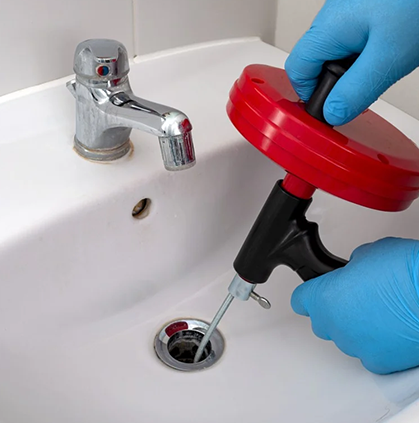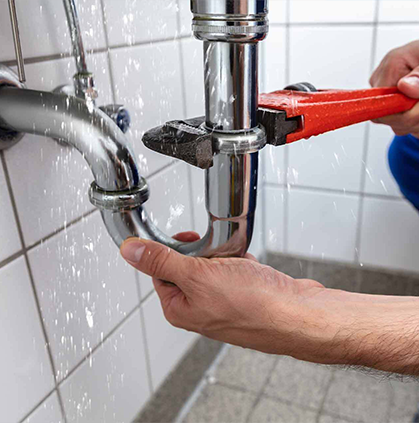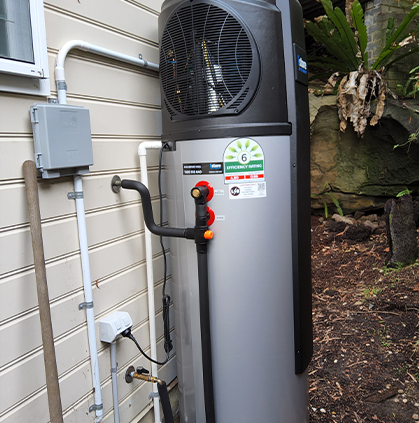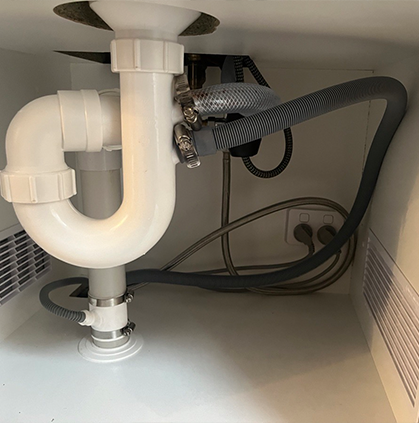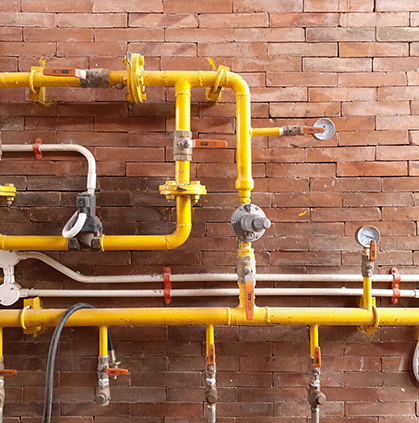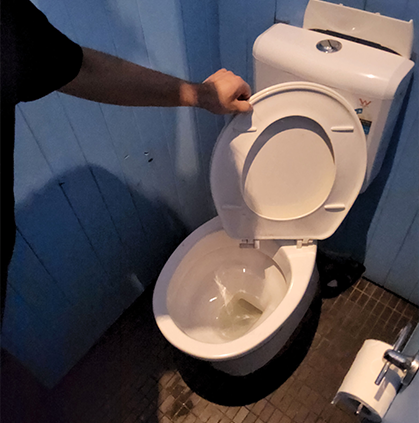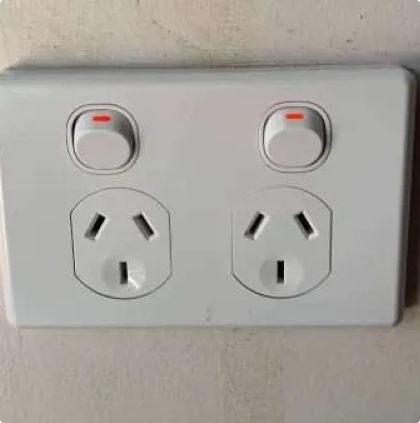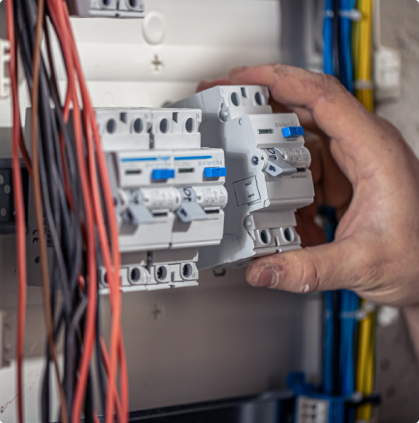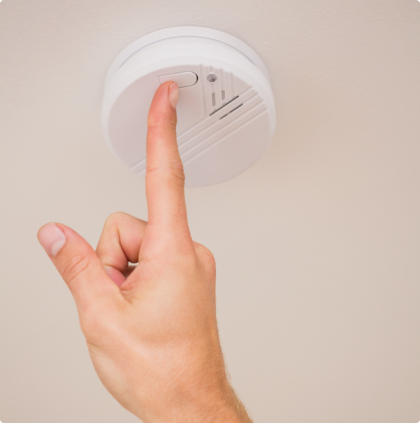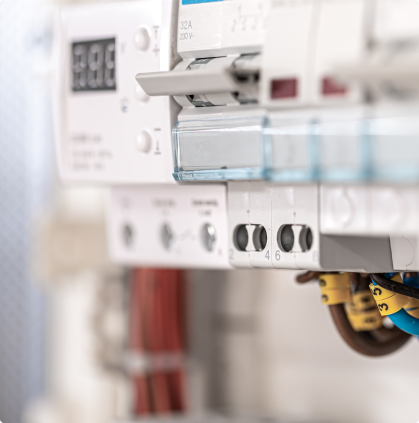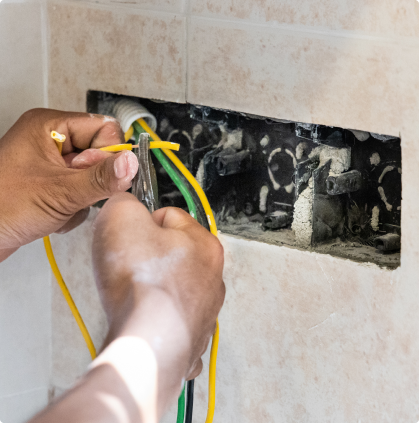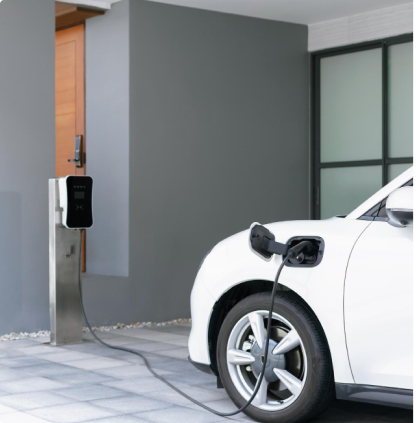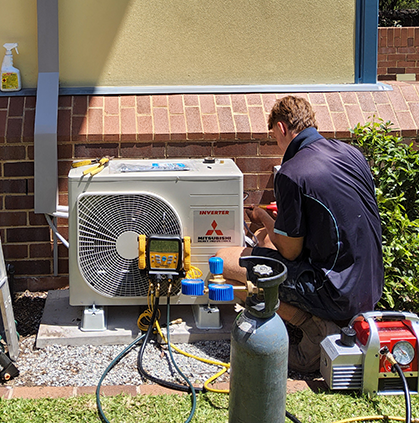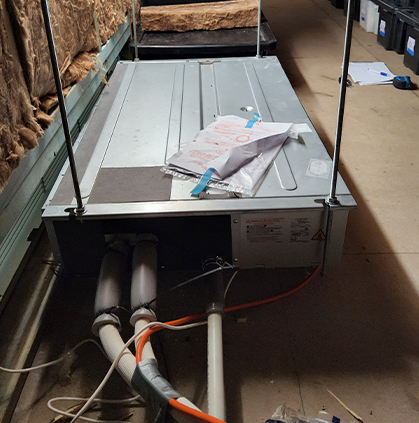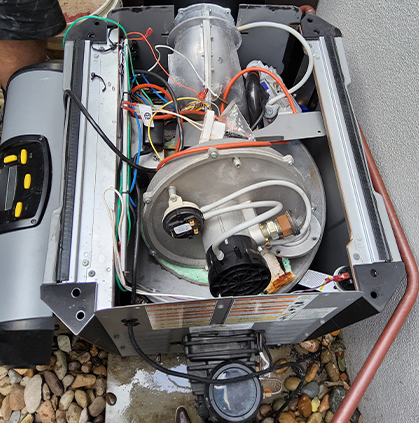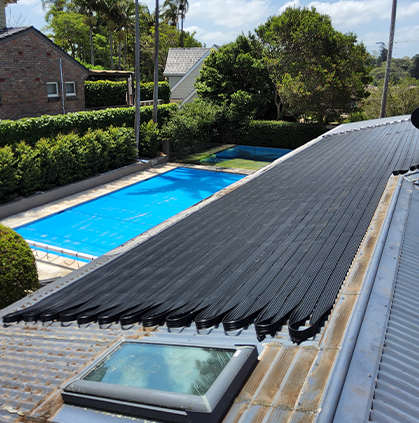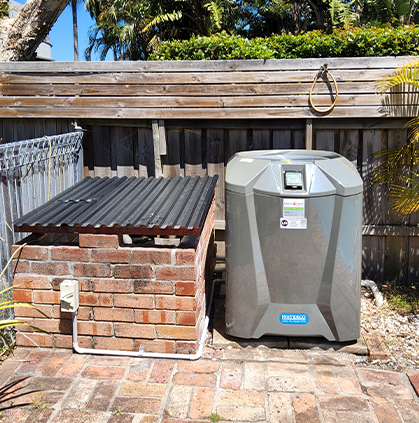If you love spending time in your pool, you’ve probably realised that the water doesn’t always stay at that perfect “just right” temperature. That’s where pool heaters come in.
But the next big question pops up: should you go for a gas pool heater or an electric pool heater? Both have their own advantages, and the right choice depends on things like your pool size, how often you use it, and of course, your budget.
In this article, we’ll break down the differences between gas and electric pool heaters, weigh up their pros and cons, and help you decide which option suits you best.
Differences Between Gas and Electric Pool Heaters
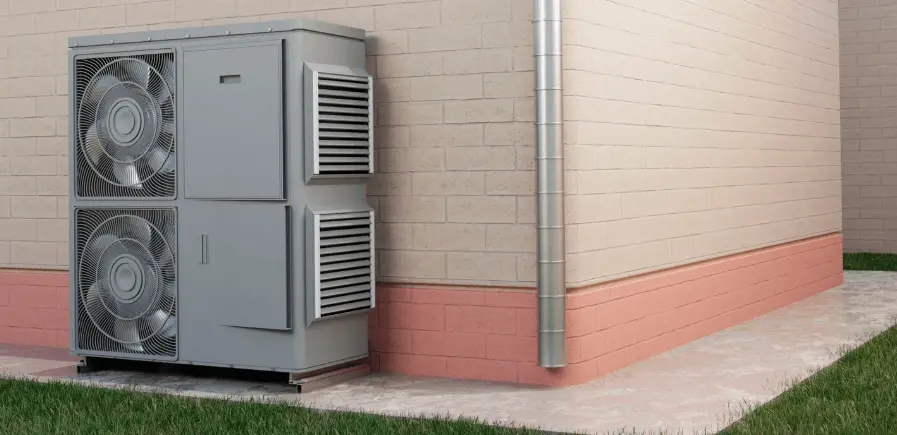
Gas and electric heaters both do the same job — warming your pool water — but they work in very different ways.
Gas Pool Heaters
These heaters use natural gas or propane to quickly raise the water temperature.
This is how it works: Cold water is pumped into the heater, where it passes through a combustion chamber. Then, the gas burns, creating heat, which is then transferred to the water before it flows back into your pool.
Electric Pool Heaters
When people talk about “electric pool heaters,” they’re usually referring to heat pumps.
Instead of generating heat by burning fuel, heat pumps draw warmth from the air (even on cooler days), compress it, and use it to heat the pool water.
Because of this, they’re more energy-efficient but tend to heat water more slowly than gas.
So, in short:
- Gas = faster heating, great for quick dips or occasional use.
- Electric (heat pump) = steady, efficient, and cost-effective over the long run.
Pros and Cons of Gas Pool Heaters
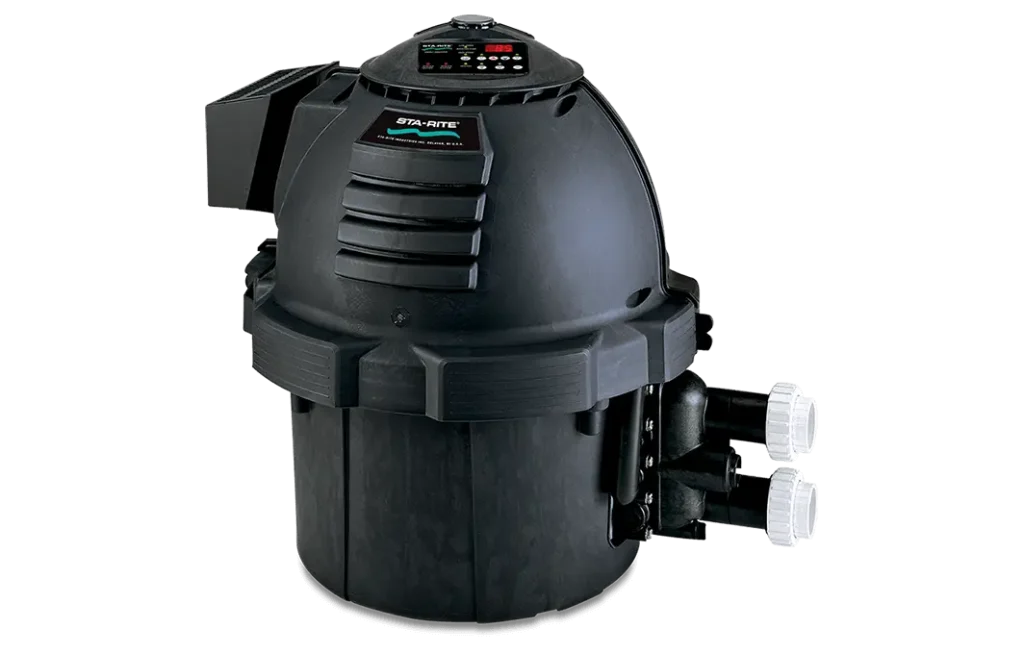
Gas pool heaters have been around for decades, and many pool owners still love them.
They’re popular because of their speed and reliability, but like any option, they come with trade-offs.
Pros of Gas Pool Heaters
- Heats water quickly: A gas heater can raise your pool temperature in just a few hours, making it perfect if you like spontaneous swims or only use your pool occasionally.
- Works in all climates: Unlike heat pumps that depend on air temperature, gas heaters work consistently no matter how cold it gets outside.
- Great for larger pools or spas: If you have a big pool or want to heat a spa quickly, gas heaters can handle the job efficiently.
Cons of Gas Pool Heaters
- Higher running costs: Because gas prices fluctuate and these heaters consume a lot of fuel, the monthly bills can add up quickly.
- Less energy-efficient: Gas heaters tend to waste more energy compared to electric options like heat pumps.
- Shorter lifespan: With proper care, gas heaters last around 5–10 years, which is generally less than electric heat pumps.
- Not the most eco-friendly: Burning fuel means higher emissions, so gas heaters aren’t the best option if sustainability is a priority.
Pros and Cons of Electric Pool Heaters
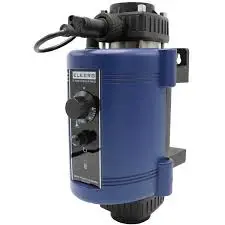
Electric pool heaters, more commonly known as heat pumps, are becoming increasingly popular among pool owners.
They’re designed for efficiency and long-term use, but just like gas pool heaters, they aren’t perfect for every situation.
Pros of Electric Pool Heaters
- Energy-efficient: Heat pumps don’t burn fuel. Instead, they transfer heat from the air to your pool water, making them much cheaper to run over time.
- Lower operating costs: While the upfront cost can be higher, the ongoing savings on energy bills often make up for it.
- Longer lifespan: With good maintenance, heat pumps can last 10–15 years, often outlasting gas heaters.
- Eco-friendly option: Since they use renewable warmth from the air, heat pumps produce fewer emissions compared to gas heaters.
Cons of Electric Pool Heaters
- Slower heating: Heat pumps work gradually. If you want your pool heated quickly for a last-minute swim, you might be waiting a while.
- Climate dependent: They work best in warmer climates. In very cold weather, efficiency drops and heating can take much longer.
- Higher upfront cost: The purchase and installation price is typically more expensive than a gas heater.
- Needs consistent use: Heat pumps are ideal if you want your pool to stay warm most of the time, but less practical for occasional heating.
So, Which One Should You Install?
Choosing between a gas and an electric pool heater really comes down to your lifestyle, location, and budget.
Both options will get the job done, but one will likely suit your needs better than the other.
- Go with a gas pool heater if:
- You want to heat your pool quickly for occasional or last-minute swims.
- You own a spa or hot tub and need high heat in a short amount of time.
- You live in a cooler climate where air temperature might not be reliable for heat pumps.
- Go with an electric pool heater (heat pump) if:
- You plan to keep your pool warm consistently throughout the season.
- You want lower monthly running costs and higher energy efficiency.
- You live in a mild or warm climate where heat pumps can operate at peak performance.
- You’re looking for a longer-lasting, environmentally friendly solution.
In simple terms:
- Gas is best for speed and flexibility.
- Electric (heat pump) is best for efficiency and long-term savings.
The right choice isn’t about which one is “better” overall, it’s about what works best for your pool and how you use it.
Read More: Common Causes of Heat Pump Not Heating and How to Fix Them
FAQ about Gas vs Electric Pool Heaters
Which is more efficient to heat your pool, gas or electric heater?
Electric heat pumps are generally more efficient than gas heaters because they transfer heat from the air instead of generating it through fuel combustion.
This means they use less energy overall, making them cheaper to run in the long term.
Gas heaters, while less efficient, do heat water much faster.
If efficiency and cost savings are your priority, an electric heater is the way to go. If speed is more important, gas wins.
What is the most economical heating option for a pool?
For most pool owners, electric heat pumps are the most economical option over time. While they cost more upfront, their lower operating costs quickly pay off.
However, if you only heat your pool a few times a year, a gas heater may be cheaper initially since you’ll avoid the higher purchase cost of a heat pump.
What should I consider before choosing a pool heater type?
Before making your choice, think about:
- Climate: Do you live in a warm area where heat pumps thrive, or a cooler region where gas might be more reliable?
- Usage habits: Do you swim often and want the pool warm consistently, or just occasionally?
- Budget: Are you more concerned about upfront costs or long-term savings?
- Sustainability: Is reducing your energy use and emissions a priority?
Balancing these factors will help you decide which heater is the best fit for your pool and lifestyle.
Conclusion
When it comes to pool heating, there’s no one-size-fits-all solution. Gas heaters shine when you need quick, powerful heating, especially for spas or in colder climates.
Electric heat pumps, on the other hand, are the smarter long-term choice if you’re after energy efficiency, lower running costs, and a more environmentally friendly option.
At the end of the day, the best pool heater is the one that matches your lifestyle, budget, and swimming habits.
If you want to make the right choice, it’s worth talking to an expert who can assess your pool size, location, and usage patterns before recommending the perfect solution.
That’s where Lightning Bult comes in. With years of experience in helping homeowners create the perfect swimming environment, our team offers professional pool heating services tailored to your needs.
Whether you’re considering a gas heater, an energy-efficient heat pump installation service, or even exploring solar pool heating, we’ve got the expertise to guide you every step of the way.
So, if you’re ready to enjoy warm, comfortable swims all year round, reach out to Lightning Bult today — and let’s find the best heating solution for your pool.



